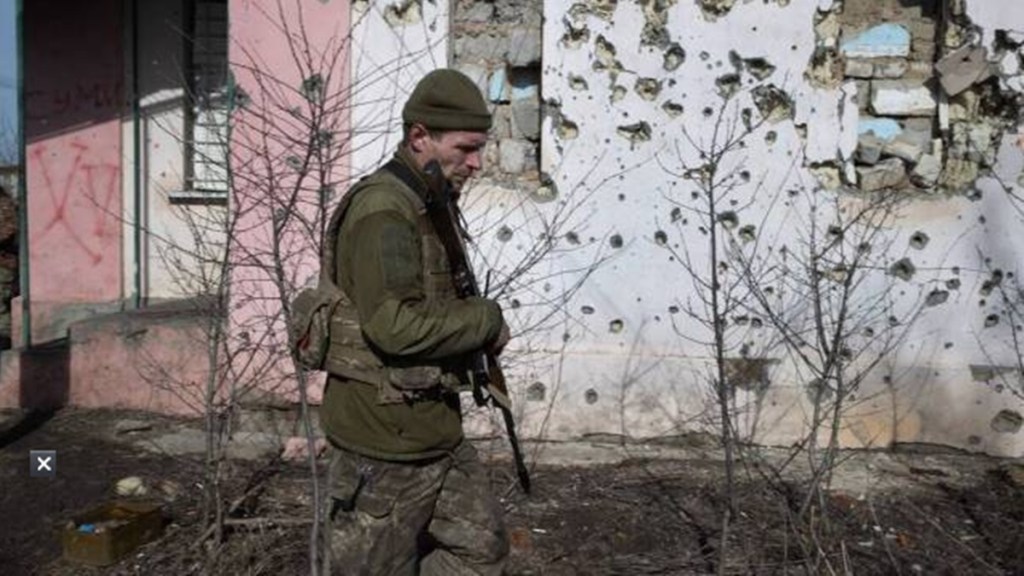Two years have passed since Russia’s invasion of Ukraine on February 24, 2022, marking the beginning of the largest conflict in Europe since World War II. Yet, despite initial predictions of a swift Russian victory, the war persists, with no end in sight.
The ongoing conflict has not only displaced millions of Ukrainians but has also reshaped the geopolitical landscape of Europe and triggered global economic turmoil. Initially, expectations were that Ukrainian defences would quickly crumble, and Kyiv would fall within days. However, Ukrainian resilience has defied these expectations, holding off Russian forces with remarkable determination.
Nevertheless, the tide of the war now favours Russia, as Ukrainian forces struggle with dwindling resources and manpower. In contrast, Russia has adeptly adapted its tactics and shielded its economy from Western sanctions, resulting in unexpected economic growth. This unforeseen resilience underscores the complex and protracted nature of the conflict, challenging preconceived notions and leaving the international community grappling with an uncertain future.
Expert View
Sharing his views with Financial Express Online, Neeraj Rajput, Editor in Chief the Final Assault., “Russia Ukraine war is two years old now and has entered third year. Yet there is no immediate sign of being over. While Ukraine’s counter-offence has been a failure against Russia, refusal of US Congress for further assistance has dismayed Zelenskiy. On the other hand, Russia is not only holding the captured Donbas region with its full military might but also capturing new cities like Avdiivka.”
“While Russia has captured (Donbas) and has rejoined one fourth of the Ukraine region in its federation, it’s really difficult to fathom Putin’s mind. What exactly is the aim of the special military operation (war) of Putin? Is it to capture more and more areas of Ukraine and finally the capital Kiev or continue the operations till Zelenskiy and NATO are fully exhausted,” observes Rajput, a war correspondent who has done ground reporting from the war zone of Donbass in 2022.
But if that is the issue then why did Russian forces return from the outskirts of Kiev during the initial weeks of the war (in ‘22). If one adds Crimea too which was captured by Russia in a bloodless war in ‘14, the total area of Ukraine which is now part of Russian Federation would amount to one-fourth, explains Rajput.
According to him, “While Ukrainian President has announced the number of soldiers killed as 31,000 he has not divulged the actual number of wounded soldiers which means that number is really huge. This has been corroborated by the western intelligence agencies too which are cooperating with Ukrainian armed forces. The new military law of Zelenskiy which prohibits any male national below 60 years of age to leave the country without informing the authorities has come under serious accusations. The law has been brought to force male population to join the army against Russia. Here lies the answer to the large number of Ukrainian soldiers being wounded in the battlefield. The Ukrainian population has been forced to go into the war zone without proper military training.”
The Russian armed forces have also suffered huge losses keeping in view the fresh recruitment drive of conscripts and other soldiers during the war which was announced by none other than Putin himself. In his view, “But number seems to be an exaggeration which is claimed by western media and their intelligence agencies.”
Again, the question is who can mediate to bring peace in Eurasian region? Can India do it?
In conversation with Financial express Online, Rajput says: “This issue was raised by Greek Prime Minister Kyriakos Mitsotakis during the recently held Raisina Dialogue in New Delhi when he said, India is a great power with considerable global influence. India believes in the ancient policy of the whole world as one family. India, like other Global south countries should not consider it as an ‘European war’.”
India @ UN on Russia-Ukraine War
India’s ambassador to the United Nations, Ruchira Kamboj, raised significant concerns during a recent UN General Assembly (Feb 27, 2024) meeting about the ongoing Russia-Ukraine conflict, which has persisted for two years without signs of abating. She questioned the effectiveness of the UN Security Council in resolving the conflict, stating, “Are we anywhere near a possible, acceptable solution? And if not, why is it that the UN system, particularly its principal organ, the United Nations Security Council, is mandated to primarily maintain international peace and security? Why is it rendered completely ineffective in the resolution of the ongoing conflict?” She emphasized the urgent need for reform within the UN to ensure the effectiveness of multilateralism, stating, “outdated and archaic structures need reform and reinventing, or else their credibility will always be on the wane. And unless we fix that systemic flaw, we will continue to be found wanting.”
She reiterated Prime Minister Narendra Modi’s stance that the current era should not be characterized by warfare, echoing sentiments expressed during Modi’s meeting with Russian President Vladimir Putin in 2022. India remains deeply concerned about the situation in Ukraine and advocates for the cessation of hostilities through dialogue and diplomacy. She emphasized the importance of keeping diplomatic channels open and encouraged sincere engagement among stakeholders to bridge divergent positions. And, highlighted India’s commitment to a people-centric approach to the conflict, focusing on providing humanitarian assistance to Ukraine and economic support to neighbouring countries in the Global South facing economic challenges.
In addition to addressing the immediate humanitarian and economic aspects of the conflict, Kamboj emphasized the need for a long-term strategy to achieve stable and lasting peace. She stated, “The path to peace requires us to keep all channels of diplomacy open. Hence, sincere and practical engagement amongst all stakeholders can help improve understanding and reduce the gap between divergent positions.” India recognizes the complexity of the conflict and the importance of sustained efforts to address its root causes.

